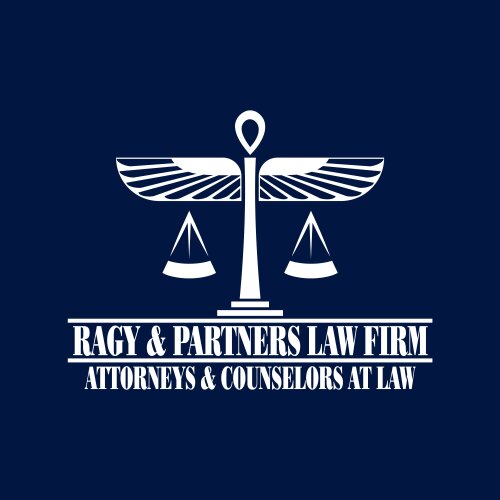Best Immigration Lawyers in Cairo
Share your needs with us, get contacted by law firms.
Free. Takes 2 min.
List of the best lawyers in Cairo, Egypt
About Immigration Law in Cairo, Egypt
Immigration law in Cairo, Egypt, is governed by a series of regulations and policies designed to manage the entry, stay, and exit of foreigners. The regulatory framework is primarily designed to ensure national security, economic stability, and to promote cultural integration. Cairo, as the capital city, serves as a central hub for diplomatic missions and organizations dealing with international matters, making it a focal point for immigration-related issues. The procedures and requirements may vary based on the purpose of immigration-whether it’s for tourism, work, study, or permanent residency.
Why You May Need a Lawyer
Individuals may need a lawyer for various reasons related to immigration in Cairo. Here are some common situations:
- Applying for work or residence permits, which require precise documentation and adherence to detailed procedures.
- Navigating the complexities of family reunification processes, especially when dealing with different national laws.
- Handling asylum or refugee claims, which often involve sensitive and urgent legal challenges.
- Facing deportation or dealing with visa overstay issues, requiring legal intervention to avoid penalties or removal.
- Appealing rejected visa applications where understanding legal grounds and providing necessary evidence is crucial.
Local Laws Overview
Key aspects of local immigration laws in Cairo include:
- Entry Visa Requirements: Citizens of certain countries require a visa upon arrival, while others may be exempt or require a pre-approved visa.
- Work Permits: Obtaining a work permit in Egypt involves specific employer sponsorship and adherence to local labor laws.
- Residency Procedures: Various types of residency permits are available, each with specific requirements and benefits.
- Naturalization and Citizenship: This involves complex legal requirements, often requiring continuous residency and proficiency in the Arabic language.
- Legal Status for Refugees: Egypt is a signatory to the 1951 Refugee Convention and offers certain protections to refugees, though the process can be complex.
Frequently Asked Questions
What is the process for obtaining a tourist visa for Egypt?
A tourist visa can often be obtained on arrival for citizens of many countries, although it is recommended to verify with the Egyptian consulate prior to travel. A tourist visa is typically valid for 30 days, with provisions for extension.
How can I obtain a work permit in Egypt?
To obtain a work permit, you'll need a job offer from an Egyptian employer who can sponsor your permit application. The process involves providing educational qualifications, a medical report, and relevant documentation.
Who qualifies for residency in Egypt?
Residency permits can be granted to those with work permits, students enrolled in Egyptian universities, or individuals with family ties in Egypt. Specific documentation and adherence to certain criteria are required.
Can foreigners own property in Egypt?
Yes, foreigners can own property in Egypt subject to specific regulations and areas permitted for foreign ownership.
What is the procedure for family reunification?
Family reunification generally requires proof of relationship and sponsorship by the family member residing in Egypt. The process involves detailed paperwork and might vary case by case.
How is asylum status granted in Egypt?
The United Nations High Commissioner for Refugees (UNHCR) in liaison with Egyptian authorities manages asylum applications. Asylum processes depend on proving persecution in the home country.
What happens if I overstay my visa?
Overstaying a visa can result in fines, detention, or deportation. It is essential to address overstays directly with Egyptian immigration authorities where possible.
Can I apply for Egyptian citizenship?
Yes, but the process is highly selective, requiring long-term residency and compliance with various legal conditions, such as proficiency in Arabic and a clean legal record.
Is dual citizenship permitted in Egypt?
Egypt generally permits dual citizenship. However, those with dual citizenship must enter the country using their Egyptian passport and might have specific obligations to their Egyptian citizenship status.
What are the key documents needed for visa applications?
While specific documentation might vary based on visa type, generally required documents include a valid passport, passport-sized photographs, a completed application form, proof of funds, and a letter stating the purpose of visit.
Additional Resources
Consider reaching out to the following resources for further immigration assistance:
- Egyptian Ministry of Foreign Affairs: For official visa and immigration requirements.
- United Nations High Commissioner for Refugees (UNHCR) Cairo: For refugee and asylum-related queries.
- International Organization for Migration (IOM): Offers support for migrants in Egypt.
- Embassy or Consulate of your home country: Can provide specific advice and support for your nationality.
Next Steps
If you need legal assistance with immigration in Cairo, consider the following steps:
- Consult with a lawyer specializing in immigration to understand your specific needs and legal requirements.
- Prepare and organize all required documents to ensure a smooth consultation and application process.
- Reach out to relevant governmental bodies or trusted legal aid organizations for assistance and guidance.
- Evaluate multiple legal professionals or services to find the best fit for your situation, ensuring they have relevant experience and good reputations.
- Stay informed about any changes to immigration laws and regulations that might affect your legal status or application process.
Lawzana helps you find the best lawyers and law firms in Cairo through a curated and pre-screened list of qualified legal professionals. Our platform offers rankings and detailed profiles of attorneys and law firms, allowing you to compare based on practice areas, including Immigration, experience, and client feedback.
Each profile includes a description of the firm's areas of practice, client reviews, team members and partners, year of establishment, spoken languages, office locations, contact information, social media presence, and any published articles or resources. Most firms on our platform speak English and are experienced in both local and international legal matters.
Get a quote from top-rated law firms in Cairo, Egypt — quickly, securely, and without unnecessary hassle.
Disclaimer:
The information provided on this page is for general informational purposes only and does not constitute legal advice. While we strive to ensure the accuracy and relevance of the content, legal information may change over time, and interpretations of the law can vary. You should always consult with a qualified legal professional for advice specific to your situation.
We disclaim all liability for actions taken or not taken based on the content of this page. If you believe any information is incorrect or outdated, please contact us, and we will review and update it where appropriate.
Browse immigration law firms by service in Cairo, Egypt
Cairo, Egypt Attorneys in related practice areas.














